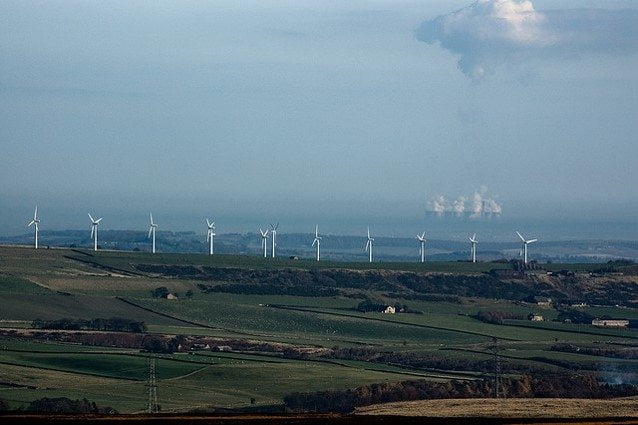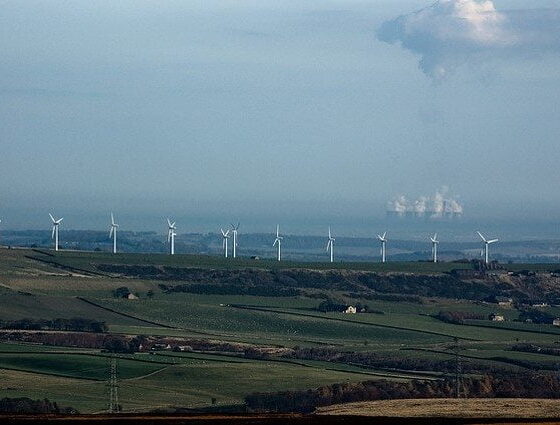

Economy
UK to miss out on renewables price dividend, research indicates
Recent changes to government energy policy mean Britons are likely to miss out on electricity price reductions now being seen in Germany. The price of wholesale electricity in Germany has fallen by 37% since 2011 owing to the addition of large amounts of wind and solar capacity, which produce the cheapest electricity once installed.
According to one recent analysis, renewables have begun similarly to drive the wholesale price downwards in the UK. Now a new study, published in the journal Nature Materials, shows that Britain was on track to reap the same scale of dividends seen in Germany before the government withdrew support for onshore wind and solar energy.
“If Britain carried on building wind and solar at the rate we’ve seen over the last few years, the fall in the wholesale electricity price would continue,” said Keith Barnham, Emeritus Professor of Physics at Imperial College London, lead author on the new study.
“Unfortunately, policy changes mean the rate of solar and onshore wind power build is going to plummet, so UK companies will
The Nature Materials analysis shows that before the raft of recent UK policy changes, such as withdrawing onshore wind projects from the Renewables Obligation and drastically cutting the Feed-in Tariff for rooftop solar, UK renewables were being built fast enough that as a proportion of total electricity demand they would roughly catch up with Germany around 2018-2020. Thus, the same scale of price fall seen there would be likely to materialise here.
“This study confirms that renewables do lead to cheaper electricity,” commented Cather
“It’s somewhat baffling that the UK Treasury either isn’t aware of this or inclined to take advantage of it, particularly when industries such as steel are complaining about high energy prices.”
Prof Barnham’s analysis also suggests that subsidies paid through bills for the proposed nuclear power station at Hinkley Point could be substantially higher than the government estimates.
The subsidy – known as a Contract for Difference – puts levies on consumers’ bills that will fund the difference between a guaranteed price (the ‘strike price’) and the wholesale price when the reactor produces electricity. The Hink
The government calculates that the total sum raised through levies for Hinkley will at most be £19bn, based on a projection that the wholesale electricity price will rise between now and 2025.
Environment group E3G calculates that this could
“Our data suggests that by 2025 the wholesale price of electricity could be close to zero,“ said Professor Barnham.
“If so, UK electricity consumers could face a total bill approaching £90bn for new nuclear electricity.”
Professor Barnham’s research focuses on adapting findings of a German research project on renewable energy, Kombikraftwerk, into a UK context. Kaspar Knorr, the head of Kombikraftwerk, is a co-author of the Nature Materials paper.
Based at the Fraunhofer Institute in Kassel, Kombikraftwerk shows h


 Environment12 months ago
Environment12 months agoAre Polymer Banknotes: an Eco-Friendly Trend or a Groundswell?

 Features11 months ago
Features11 months agoEco-Friendly Cryptocurrencies: Sustainable Investment Choices

 Features12 months ago
Features12 months agoEco-Friendly Crypto Traders Must Find the Right Exchange

 Energy11 months ago
Energy11 months agoThe Growing Role of Solar Panels in Ireland’s Energy Future





























